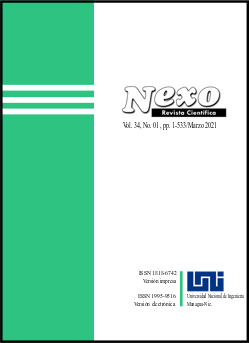Information security and information hygiene on internet media
DOI:
https://doi.org/10.5377/nexo.v34i01.11291Keywords:
Security, Information hygiene, Linguistic ecology, Internet mediaAbstract
The relevance of the problem of ensuring information security at the level of “information hygiene” is due to the risks of the negative potential of Internet media. The purpose of the article is to analyse the state of the hygiene segment of the information security of Ukrainian Internet media under global threats. The leading research method for this problem is content analysis, which allows to determine the qualitative features of modern media information based on psycholinguistic markers of information. It has been established that the largest part in the information space of Internet media is fake information, and therefore special attention is paid to its analysis. The article highlights the main markers by which you can determine the fake. The need for critical familiarization with the information is noted. The results of the study expand the understanding of the concepts of information security and information hygiene.
Downloads
2168
Downloads
Published
How to Cite
Issue
Section
License
The authors who publish in Nexo Scientific Journal agree to the following terms:
- Authors retain the copyright and grant the journal the right of the first publication under the license Creative Commons Attribution License, which allows others to share the work with a recognition of the authorship of the work and the initial publication in Nexo Scientific Journal.
- Authors may separately establish additional agreements for the non-exclusive distribution of the version of the work published in the journal (for example, in an institutional repository or a book), with the recognition of the initial publication in Nexo Scientific Journal.
- Authors are allowed and encouraged to disseminate their works electronically (for example, in institutional repositories or in their own website) before and during the submission process, as it can lead to productive exchanges, as well as earlier and greater citation of published works.










